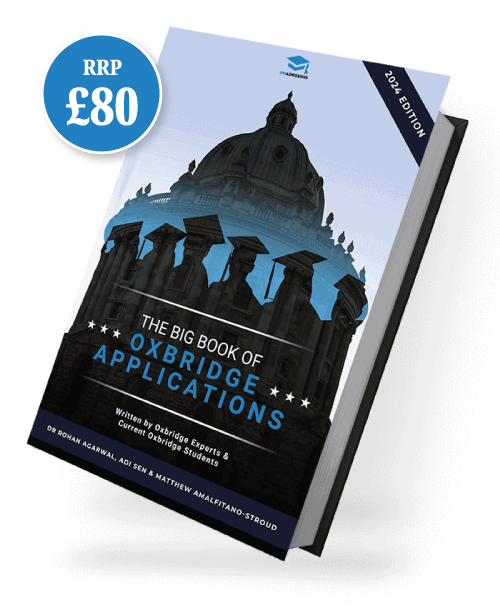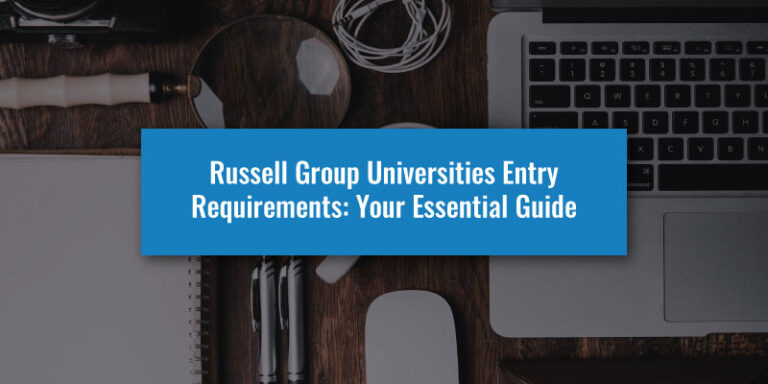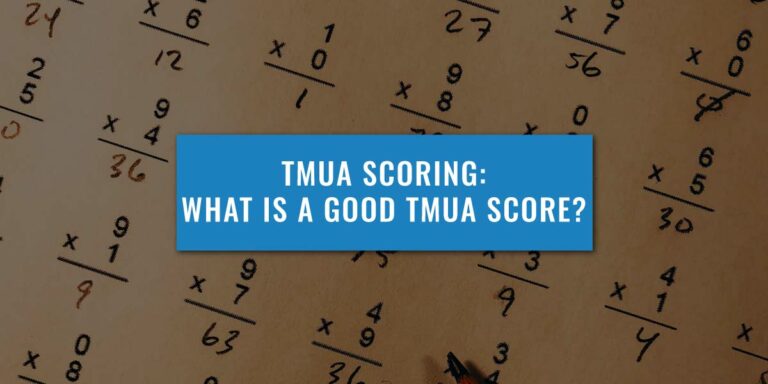Mathematics is one of the core subjects that every student will learn during school, but many students wish to pursue their education in Maths further. Many UK universities teach Mathematics both as a standalone degree or in a variety of combined courses, so the options available for those wishing to go into Maths are vast.
However, Maths is a difficult subject to learn at this level, and these undergraduate degrees aren’t for everyone and some of the top Maths degrees in the UK are incredibly tough to get into (Maths at Oxford saw an acceptance rate of just 10% in 2023, Cambridge had 16.2%). As with any degree in the UK, applicants will need to meet certain entry requirements, but these can be pretty difficult to meet when applying for Maths.
In this guide, we’ll explore the typical entry requirements for a Maths degree in the UK and take a look at some of the most popular Maths degrees available to see what is required of you as an applicant. Let’s begin!
Types of Maths Degree
In the UK, there are two types of Computer Science degrees available: BA (Bachelor’s Honour) and Masters.
While you may assume Maths is just taught as it is in school, there are actually far more options available than this. A typical school in the UK will teach Maths, Further Maths and a few specialist qualifications like statistics. At universities, the options available are nearly limitless.
Beyond pure Mathematics, UK universities offer specialist degrees such as:
- Actuarial Science and Mathematics
- Applied Maths
- Data Science
- Statistics
These are all heavily based on Maths, but many other degrees require an advanced understanding of it, such as Engineering, Economics, Finance, Accountancy and Computer Science. These aren’t really Maths degrees, but it goes to show how important a good understanding of the subject is when working in all of these fields. It’s a fundamental skill that you will need to have at some level to succeed in most degrees.
However, there are also plenty of options available if you want to study pure Mathematics alongside another subject. These are known as combination courses and can be found at multiple universities, including Oxford, Imperial College London and Warwick. Examples of these degrees include:
- Mathematics and Business Studies
- Mathematics and Computer Science
- Mathematics and Economics
- Mathematics and Philosophy
- Mathematics and Physics
- Mathematics and Statistics
Be aware that some universities only offer these combined courses, such as the London School of Economics.
Naturally, these degrees will all have differing entry requirements from one another, as some may require additional subjects and A-Levels of extra experience in certain fields. What doesn’t change, though, is how high the standards generally are for Maths degrees, especially at the highest-ranking universities.
For this guide, we’ll focus on standard Mathematics degrees offered by the universities. Let’s next take a look at everything that will be required of you as an applicant.
Early, effective preparation is the key to a successful Oxbridge Mathematics application.
Writing the perfect Personal Statement, scoring highly on the STEP or MAT and interviewing like an expert is how you will get your dream Oxbridge Mathematics offer. You can easily achieve all of this with support from UniAdmissions!
Discover our Mathematics Full-Blue Programme for comprehensive admissions support by clicking the button below to enrol and triple your chances of success.
Maths Entry Requirements
We will now review all the major steps that an applicant must take to apply for mathematics in the UK. The application processes are roughly the same for most degrees, but some will have additional steps, such as admissions tests and interviews, so just be aware that the university you’re considering does not require these.
GCSEs
GCSEs are rarely the most important part of a university application, but getting a good grade in your Maths GCSEs will always be essential for getting your place. Although many universities don’t set specific requirements for GCSEs, many will expect you to have achieved a certain amount at grade 6 – 9 in at least five GCSEs, including Maths. Others will specifically request a high grade in Mathematics, which anyone hoping to study Maths at university should hopefully already have.
The GCSEs that you take don’t really matter as Maths is essential for all secondary school students at this age. Further maths is an option for GCSE students at some schools, but having this won’t have much impact on your application. The same applies to other optional GCSEs like Statistics and ICT. English is sometimes also listed as a requirement GCSE, but this is also a compulsory subject, so all applicants should achieve this.
A-Levels
A-Levels are arguably the most important part of your Maths application in most cases, as they not only impact whether or not you get an offer but also determine if you will ultimately be admitted onto the course (excluding unconditional offers).
Every Maths degree in the UK has a minimum grade requirement for applicants. These vary from university to university, but you will have to meet these grade thresholds wherever you apply. A-level requirements in the UK range from BCD to A*A*A, with the highest boundaries being utilised at the top-ranking match universities.
In some cases, contextual offers will be given to those with extenuating circumstances that impacted their ability to study at school. These contextual offers usually reduce the grade requirements by one of two grades. For example, a university that requires AAA could provide an offer for AAB if an applicant meets the requirements for a contextual offer.
Unlike GCSEs the subjects that you take will also have an impact too. All Maths degrees will require applicants to have taken Maths and/or Further Maths at A-Level, with most expecting specific grades from the subject. Anyone planning on studying Maths at university should already be studying and excelling in Mathematics anyway, so this requirement shouldn’t be a problem to meet.
Be aware that most higher-level universities don’t accept A-Levels in General Studies or Critical Thinking.
Here are the A-Level requirements for some of the top Maths degrees in the UK:
Oxford Maths Requirements
A*A*A with A*A* in Mathematics and Further Mathematics (if taken)
Cambridge Maths Requirements
A*A*A, with Mathematics and Further Mathematics (grades not specified).
Imperial College London Maths Requirements
A*A*A with A*A* in Maths and Further Maths
UCL Maths Requirements
A*A*A with A*A* in Maths and Further Maths (reduced offer with a 2 in any STEP paper or distinction in Maths AEA). English, Sciences, Computer Science or Economics preferred as A-Levels).
King’s College London Maths Requirements
A*AA with A*A in Maths and Further Maths (either order)
Alternative Qualifications
For those not studying in England, there are a variety of alternative qualifications that will be accepted by most universities.
Scottish students will be taking Advanced higher rather than A-Levels, but you will still need to meet equivalent minimum grades to be admitted to the course. For competitive universities like Oxford and Cambridge, these requirements fall at around AA/AAB, but others will be lower. Applicants will still need to complete Mathematics as one of their subjects.
While many countries have unique examinations and qualifications, one universal option for all international applicants is to complete an International Baccalaureate. Minimum scores for this range from 36 to 42 points, with Mathematics once again being a required subject.
Back in the UK, some universities may accept qualifications such as BTECs or foundation degrees, though this is less common. However, they all provide UCAS Tariff points, which many universities consider within the application process. If you’re unaware, applicants gain tariff points for each UK-based qualification they receive, including A-Levels and Advanced Highers. Universities can set minimum point requirements for applicants to ensure they have achieved a certain level of qualification without just being restricted to one.
However, Tariff points aren’t considered by other universities, including Oxbridge and the G5 Universities.
Access "The Big Book Of Oxbridge Applications" For FREE
Once you’ve learnt about the Oxbridge Maths entry requirements, discover the secrets to meeting all of them in The Big Book Of Oxbridge Applications, available for free here. Through over 350 pages, you’ll find:
- Over 40 admissions test practice questions
- 28 example Oxbridge Personal Statements
- Interviews with Oxbridge students and graduates
- Additional downloadable resources
Fill in your details below to claim your digital copy today!

Personal Statement
As a part of your UCAS Application – which is essential for all applicants and is the only way to apply to study in the UK – you will need to write a Personal Statement to submit to your university choices. This statement will be submitted digitally and cannot be longer than 4,000 characters across three unique questions.
The purpose of the Personal Statement is to offer context behind your application, which is guided by the three questions you’ll have to answer. It’s your chance to discuss why you want to study Maths, what experience you have had with the subject (both in and out of school) and what you could bring to the university if you were admitted.
Universities don’t score these statements in any way, so there’s no minimum requirement. However, you need to ensure your statement is well-written, interesting and includes only the best discussion points about your previous experiences and motivations.
The key to a strong Personal Statement is to make it personal while connecting all your points back to the subject in some way while keeping discussion points in the relevant sections. Reflecting not only on your achievements and experiences but also on what you’ve learned from them is an excellent way to showcase your potential as a student. For more tips on crafting your Personal Statement, check out our Ultimate Guide.
Admissions Tests
We’re now on to the requirements that not every university will need from applicants. The first one is the admissions test, which has a few notable exams for applicants in the UK. Let’s look at them one by one:
Oxford MAT
The University of Oxford uses the Mathematics Admissions Test (MAT) to test its applicants prior to interviews. This is a computer-based test that features both multiple-choice and written questions. The test syllabus covers Mathematics knowledge up to A-Level standards.
You’ll have 2 hours and 30 minutes to complete 25 multiple-choice questions and two, multiple-part written questions, adding to a total mark count of 100. Oxford doesn’t set a minimum score for the MAT, but you can see a clear trend when looking at past results that those scoring higher will be far more likely to get an offer.
Calculators are not permitted.
TMUA
An admissions test that originated from Cambridge is the Test of Mathematics for University Admission (TMUA). While Cambridge uses this test for various degrees (including Economics), it’s not actually accepted for its Maths degree. Instead, it’s Imperial College London that requires applicants to sit this test.
The Imperial Mathematics course page states that applicants who apply before December 9th must sit the test. December 9th is the cut-off date for TMUA registration (which is sat in January), so anyone who failed to register for the test must complete the STEP instead.
The University of Warwick also requires the TMUA to be sat, though it has set a minimum score requirement of 6.5.
The TMUA is a multiple-choice quiz featuring 40 questions that must be completed in 2 hours 30 minutes. The knowledge required here is similar to the MAT, though one of the TMUA is less focussed on pure Maths and more on applying Maths in different contexts.
As with the MAT, there is no minimum score, but scoring 6.0 or above (based on the score conversion) will have a good chance of earning their offer. Calculators are not allowed in the test.
STEP
Instead of the TMUA, Cambridge requires applicants to complete the Sixth Term Examination Paper. This test is taken across two different papers, each of which contains 12 questions. Applicants are only required to answer six of these and they have three hours to do so.
The STEP is the most complex of the Maths admissions tests, as it tests applicants on a variety of topics from both A-Level Maths and Further Maths. The questions are also much longer and contain 20 marks each, which are given for both solutions and method. Calculators are not allowed.
The test is scored on a grading system of U (lowest), 3, 2, 1, and S (highest). Cambridge requires all of its applicants to achieve a 1 on one paper, though some colleges have a STEP flexible offer scheme.
Another unique aspect of the STEP is that it’s sat after the application process and when offers have been sent. You’ll sit the two papers on separate days in June and won’t get your results until mid-August, around the time A-Level results are released.
Cambridge isn’t the only university to use the STEP either. We’ve already mentioned how Imperial uses the test, but a STEP result is also required by the University of Warwick for admission, though applicants only need to achieve a grade 2.
Other universities have the STEP as an option, such as King’s College London and the University of Bristol. At these universities, it’s used as a replacement for something missing (usually a Further Mathematics A-Level).
Interviews
Oxbridge interviews are always held as traditional panel interviews (either in-person or remote), where 2 – 3 members of the college faculty will ask the applicant a variety of questions relating to their motivations and interests, as well as testing their knowledge and capabilities through Mathematical problems. Each applicant will sit multiple interviews during the first three weeks of December, though additional interviews may be required in January.
These interviews can be daunting, but they’re your chance to truly set yourself apart from the competition, which is already extremely fierce. Be sure to prepare thoroughly for these interviews as they will be all that’s left between you and your offer. Remember, there’s a shortlisting process to be invited so anyone who gets to attend an interview is already seen as a viable candidate. Now all you have to do is prove that you’re worthy of a slot in their class.
Oxbridge applicants will receive their offers in late January, much earlier than the rest of the applicants who will have only just submitted their UCAS applications at this time.
Conclusion
That covers all of the major entry requirements for Mathematics in the UK. Individual universities may have additional things you need to do in your application (such as Cambridge’s MyCApp), so be sure to carefully review the requirements of the courses you’re considering applying to.
Also, be aware that any applicants whose first language isn’t English will need to complete an English Language Proficiency Test, for which universities will have their own minimum requirements.
We hope you have found this information helpful, be sure to check out our other guides relating to the Mathematics admissions process in the UK, especially for Oxbridge applicants. As well as our guides, we also offer tailored, comprehensive support for Oxford and Cambridge Maths with our Oxbridge Mathematics Full-Blue Programme. We provide you with all of the support and materials you will need to get through each step of the application process and triple your chances of success. If you’d like to learn more, discover the course page or book a free consultation to speak with our friendly admissions team.
Our expert tutors will guide you to Oxbridge Mathematics success
Applying to Oxbridge is immensely competitive, so give yourself the best chance of success with expert support from UniAdmissions. We will help you craft the perfect Personal Statement, achieve a highly competitive STEP or MAT score and Interview effectively – covering all areas of your Oxbridge application.
Discover our Oxbridge Mathematics Full-Blue Programme for comprehensive admissions support by clicking the button below to enrol and triple your chances of success.






